


Does the Yamina and Derech Eretz Merger Bring More Stability?
Written By: Dr. Assaf Shapira
Joint lists decrease political polarization in the Knesset, but this might not hold true when it comes to artificial mergers and parties that have never proven that they represent a significant portion of the population.

The Center: Yesh Atid, New Hope, Blue and White and Yisrael Beitenu Voters
Written By: Prof. Tamar Hermann, Dr. Or Anabi
The Center of the Israeli political map is fluid and is still developing a systematic and uniform ideological worldview. What do we know about its voters?

IDI’s 2020-2021 Biennial Report
The political crisis that afflicted Israel in late 2019, and the global pandemic that followed close on its heels, set the stage for a unique period of institutional development and activity at IDI.
IDI’s newly released Biennial Report provides a detailed look into how IDI experts met the unprecedented challenges of 2020-2021.
Read about IDI’s key policy initiatives, new people and programs, and the important role played by our supporters and partners in Israel and around the world.
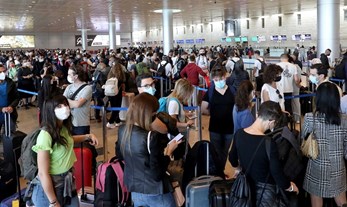
More Supply than Demand: Israel’s Labor Market
Written By: Daphna Aviram-Nitzan
Behind the record number of job openings, in an age of full employment and an economy with rapid growth, what steps can the government take to promote the inclusion of workers currently outside the job market and to help businesses?

3 Comments on the Labor Party Leadership Primaries
Written By: Prof. Ofer Kenig
Merav Michaeli just became the first Labor leader to win reelection since the party adopted the ‘primaries’ system in 1992. IDI expert Prof. Ofer Kenig presents three pertinent insights on the state of democracy in the party founded by the leaders who established Israel.

President Biden’s Visit to Israel: Special Survey
Written By: Prof. Tamar Hermann, Dr. Or Anabi, Yaron Kaplan
Ahead of President Biden’s visit to Israel, a special IDI survey finds that Israelis are wary about the prospect of a new deal with Iran and split on the possibility that the presidential visit will lead to normalization with Saudi Arabia.
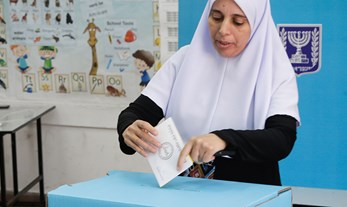
Restoring Hope to Israel’s Arab Citizens Offers Hope for All Israelis
Written By: Dr. Muhammed Khalaily
The expected drop in voter turnout among Arab citizens and their representation in Knesset, regardless of who wins or loses these elections, poses a real threat to the political system as a whole.

Majority Think Low Chances Next Election will End Gridlock
Written By: Prof. Tamar Hermann, Dr. Or Anabi
51% of Israelis are satisfied with the decision to hold new elections and 62.5% will vote for the same party as the last election; 57.5% of Israelis think that there is a low likelihood of a stable government being formed after the election

Behind the Dissolution of the Knesset
Written By: Dr. Assaf Shapira
What majority is required to pass a law to dissolve the Knesset on the various readings? After the Knesset is dissolved, how do it and the Government function? What do things look like right now?

Five (Elections) in Less Than Four (Years)
Written By: Prof. Ofer Kenig
Israel is about to hold its fifth election in less than four years. With elections taking place every 2.4 years, this places Israel first in the world in terms of frequencies of elections since 1996.
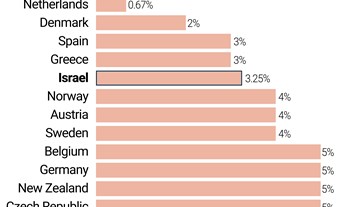
IDI Experts on the Proposed Bill to Lower the Electoral Threshold
Written By: Prof. Ofer Kenig, Dr. Amir Fuchs, Dr. Assaf Shapira
Lowering the electoral threshold will only further fragment Israel's political system

Changes in the New Labor Market: A Tasks and Skills Analysis
Written By: Gabriel Gordon, Zak Hirsch, Prof. Yotam Margalit
The rapid rate of technological development requires an examination of the changes in demand for workers, specifically in terms of the tasks that make up different occupations. This study offers such an examination along with recommendations for action

Israel’s Future Labor Market will Further Widen Gaps Between Jews and Arabs and Reduce Gender Gaps
Written By: Prof. Yotam Margalit, Gabriel Gordon, Zak Hirsch
A new study by IDI experts Prof. Yotam Margalit, Gabriel Gordon and Zak Hirsch finds that the Israeli Economy is transitioning towards occupations in which the main tasks require high analytical abilities and to a lesser extent interpersonal abilities. Occupations which mainly require routine-physical abilities are diminishing rapidly
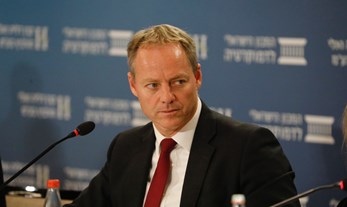
Is There Any Way Out of Israel's Never Ending Election Cycle?
Written By: Yohanan Plesner
As Israel prepares for the dispersal of the Knesset, which will lead to the fifth election in less than four years, CNN's Hadas Gold spoke with Yohanan Plesner to unpack what all this means

Eli Hurvitz Conference Day 2 Summary
“The issue I want to talk about is extremists versus moderates. Those who want to destroy and tear apart, versus those who want to build. And that’s what these elections are about. This is the struggle we have to win.” Alternate Prime Minister and Foreign Minister Yair Lapid

Intergenerational Mobility in Israel: Do Gaps Get Smaller from Generation to Generation?
Written By: Gabriel Gordon, Prof. Karnit Flug, Roe Kenneth Portal
This study examines patterns of intergenerational mobility and found considerable differences between different population groups

Innovation as a Growth Accelerator
Written By: Adv. Rita Golstein-Galperin, Gilad Be’ery, Dr. Shaul Hartal, Ayelet Kol, Lior Levi
Israel hi-tech sectors is one of the largest and most innovative in the world, accounting for around 10% of jobs in the country - but innovation to be limited to what is still a minority of the workforce.

Intergenerational Mobility in Israel is Relatively Low
Written By: Prof. Karnit Flug, Gabriel Gordon, Roe Kenneth Portal
New IDI study finds that only 14% of Israeli children in the bottom income quartile will reach the top quartile
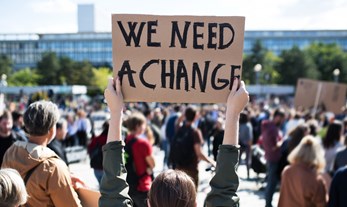
Climate Innovation Report
Written By: Daphna Aviram-Nitzan
This report presents the results of the work led jointly by the Israel Democracy Institute and the Israel Innovation Institute - a proposal for government policy to promote climate innovation

Public Opinion Survey on Socioeconomic Issues
Written By: Prof. Karnit Flug, Dana Bublil, Yarden Kedar, Roe Kenneth Portal
Despite the health and economic crisis that has affected Israel since March 2020, the share of those who say they are satisfied with their economic situation (“somewhat satisfied” or “very satisfied”) has risen from 28% in the summer of 2019 to around 33% in May 2022.

Eli Hurvitz Conference Day 1 Summary
Tamar Zandberg Minister of Environmental Protection: “On Sunday, together with Minister Karine Elharrar and Minister Orit Farkash-Hacohen, we will bring a precedent-setting NIS 3 billion government decision to promote innovation & climate change. This decision includes many of the removal of barriers proposed by the Israel Democracy Institute”
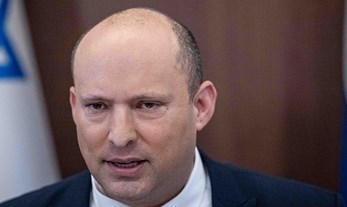
Israel's Worst Political Crisis Is Not Over
Written By: Yohanan Plesner
A fifth election in three years, is a clear indication that Israel’s worst political crisis did not end when this government was sworn into office.

The New Israeli Dream: Quality Education for All
Written By: Eli Hurvitz
Israeli public understands that the world into which our children are growing is computational, international and digital.

Terms of Office of Supreme Court Justices
Written By: Dr. Guy Lurie
In Israel, judges sit on the bench until they reach the age of 70, while advocates for changing the current method of their appointment often support the idea of limiting Supreme Court judges’ tenure.

Briefing: Judea and Samaria Regulation Law with Col. (res.) Dr. Liron Libman
Written By: Colonel (Res.) Dr. Liron A. Libman
The bill to extend the regulations that apply Israeli law to Israelis living in Judea and Samaria failed to pass the preliminary Knesset plenum vote on Monday. Dr. Libman explains the law's history as well as the consequences of failing to pass it by the end of June 2022.

The Dramatic Consequences of Not Renewing the Judea and Samaria Law
Written By: Colonel (Res.) Dr. Liron A. Libman
The expiration of the Judea and Samaria Law will have dramatic consequences for both Israelis and Palestinians. Is there a way to bypass this expiration? Will Israelis residing in the territories be able to vote in the elections? What else is at risk?

The IDF’s Greatest Challenge
Written By: Yohanan Plesner
The model underlying the IDF’s success is in grave danger - we must have the courage to change its outdated model of service

Bennett-Lapid Government - One Year
Written By: Prof. Tamar Hermann, Dr. Or Anabi
One year since the formation of the Bennett-Lapid government: assessment of government’s performance tied to parties Israelis voted for

The Judea and Samaria Regulations Law: An Explainer
Written By: Colonel (Res.) Dr. Liron A. Libman
The bill to extend the validity of regulations that apply Israeli law to Israelis living in Judea and Samaria failed to pass the preliminary Knesset plenum vote Monday - Dr. Libman explains the law's history and its implications

In the Footsteps of Ruth
Written By: Adv. Shlomit Ravitsky Tur-Paz
Conversion in Israel must follow the example of Ruth so that we can extend our open arms to those seeking to join

